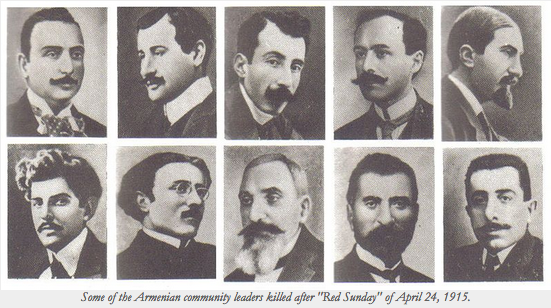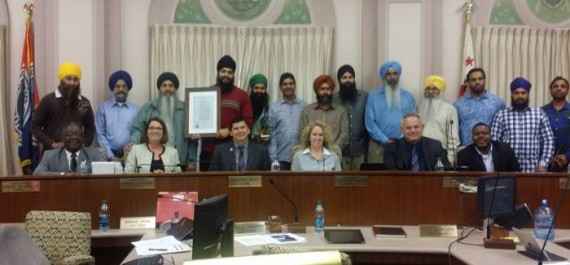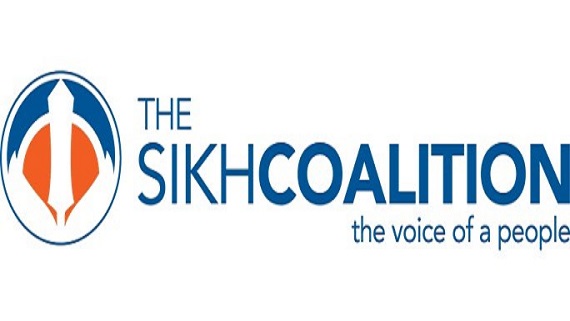World News
100th Anniversary of Armenian Genocide Illustrates Vulnerability of Minorities
April 30, 2015 | By Sikh Siyasat Bureau
Impunity for state-sponsored ethnic cleansing began with the 20th-century’s first major genocide
“Nationalism of one kind or another was the cause of most of the genocide of the twentieth century. Flags are bits of colored cloth that governments use first to shrink-wrap people’s minds and then as ceremonial shrouds to bury the dead.” — Arundhati Roy.
The month of April 2015 marks one hundred years since the beginning of the Armenian Genocide, a multi-year, state-sponsored ethnic cleansing of non-Muslims, especially the 3,000-year-old Armenian community, from the Turkish Ottoman Empire.
As the 20th century’s first systematic and targeted slaughter of a specific people group, the atrocity inspired the coining of the term “genocide.” Blanket impunity for the Armenian Genocide, which left a calculated 1.5 million or more Armenian Christians (as well as members of other minority communities living in the Ottoman Empire), dead at the hands of state actors, set the stage for modern struggles to hold the powerful accountable for their oppression of the weak. Many communities have since suffered similarly horrifying genocides at the hands of the State, most notably the Jewish people subjugated and eliminated by the Nazi regime in Europe.
 While the Nazis were punished and are today excoriated for their crimes, more modern genocides perpetrated against minority religious communities in South Asia, especially against Sikhs in 1984 and Muslims in 2002, bear striking similarities to the Armenian Genocide as the perpetrators have received not only impunity but actual reward, promotion, and increased power as a result of dipping their hands in the blood of innocents.
While the Nazis were punished and are today excoriated for their crimes, more modern genocides perpetrated against minority religious communities in South Asia, especially against Sikhs in 1984 and Muslims in 2002, bear striking similarities to the Armenian Genocide as the perpetrators have received not only impunity but actual reward, promotion, and increased power as a result of dipping their hands in the blood of innocents.
“Preventing future genocides requires acknowledging past genocides,” remarked Sikh Information Centre Founder Bhajan Singh, who has spent over 30 years working to secure liberty for South Asian minorities. “The first step to achieving justice is recognizing a crime was committed, and so, 100 years after the terror of the Armenian Genocide began, we must cry out for justice by refusing to forget the blood that was spilled. Like the Jewish Holocaust and the Sikh Genocide, the Armenian Genocide has its own deniers, and the one attribute they all share is a lust for power, control, and supremacy. Although the victims of these genocides come from diverse and distinct communities, one thing that unites us all is our suffering. As we pursue healing through justice and reconciliation, we need to link arms and work together collaboratively to achieve our common goal.”
The Armenian Genocide officially began on April 24, 1915 (known today as “Red Sunday”) with the arrest of approximately 250 of the most prominent Armenian public figures — clergy, journalists, poets, teachers, attorneys, businessmen, and statesmen — from their homes in Constantinople, the capital of the Ottoman Empire. Those arrested were imprisoned, held without charges or trial, and most killed in custody. Red Sunday resulted in the decapitation of the community leadership of the Armenian people.
Some of the Armenian community leaders killed after “Red Sunday” of April 24, 1915.
Subsequently, the ruling party passed the “Temporary Law of Deportation,” using national security as an excuse to label non-Turks as enemies of the state and organize their liquidation. The State began rounding up all Armenians and forcing them to death march hundreds of miles across the desert, usually without food or water, to a network of 25 concentration camps. There they were starved to death or simply slaughtered and then buried, tens of thousands at a time, in mass graves. Armenians who were not deported were murdered by death squads who, according to History.com, “drowned people in rivers, threw them off cliffs, crucified them and burned them alive.” In many cases, Armenian women were raped and forced into harems or taken as slaves, while children were kidnapped and forcibly converted to Islam.
The goal of the genocide, which lasted until 1923, was the creation of an artificially homogenous population. That is, the ruling party sought to fabricate the Ottoman Empire as an ethnically-pure land of Turks through the practice of state-sponsored racial and religious supremacy. By the early 1920s, when the killings had mostly ended, the Ottoman Empire’s original population of two million Armenians was reduced to just 388,000. Today, historians, human rights organizations, and governments around the world generally acknowledge the deaths of 1.5 million Armenians. As of the centennial of the tragedy’s genesis, 26 countries have officially recognized the genocide.
On Friday, April 24, 2015, in honor of the 100th anniversary of the Armenian Genocide, Germany (which was allied with the Ottoman Empire in 1915 and many of whose troops peripherally assisted or at least observed the killing) became the latest country to recognize and condemn the atrocity. As Germany’s Bundestag (lower house of parliament) passed a resolution acknowledging the genocide, Bundestag President Norbert Lammert stated:
“Our obligation is to bear accountability. The Germans, from their own familiarity, call upon others to face their own history, even if it is painful; this is the condition for reconciliation between the Armenian and Turkish nations.
“The Germans, who placed alliance with the Ottoman Empire above human lives, had their own guilt in this genocide.
“History compels to remember historical facts. It is inevitable that there can be no real peace as long as the descendants of the victims demand justice.”
To this day and to its great discredit, the government of Turkey refuses to recognize the genocide perpetrated by its predecessor state, the Ottoman Empire. Indeed, Turkish law even criminalizes referring to the events that began in 1915 as “genocide.” While the Armenians of yesteryear were (prior to their elimination) subjected to denials of religious liberty through laws imposing social and political restrictions on non-Muslims, the Turks of today are subjected to denials of free speech.
Remarking on genocide denial, Sikh Information Centre Executive Director Pieter Friedrich said, “An attitude that denies the reality of genocide perpetuates the divide between cultures. Social instability is aggravated and even sparked by the sentiments of people who, for their own selfish political or religious purposes, seek to deny the responsibility of the State to answer for atrocities it sponsors. The future of peace on Earth requires a communal mourning over the deaths and injustices inflicted on innocents by the ruling elite. Commemorating the tragic truth of the Armenian Genocide is the first small step towards achieving peace in a tumultuous world.”
 While the Armenian Genocide has gained wide recognition among the world’s nation-states, Sikh Information Centre has found inspiration in the example of the Armenian diaspora to join a number of Indian diaspora groups, including American Sikh Political Action Committee and Organization for Minorities of India, to secure recognition of the 1984 Sikh Genocide and other atrocities in India by Western municipal and state governments.
While the Armenian Genocide has gained wide recognition among the world’s nation-states, Sikh Information Centre has found inspiration in the example of the Armenian diaspora to join a number of Indian diaspora groups, including American Sikh Political Action Committee and Organization for Minorities of India, to secure recognition of the 1984 Sikh Genocide and other atrocities in India by Western municipal and state governments.
On March 10, the Central Californian City of Stockton, home to the oldest permanent settlement of Sikh-Americans, passed a proclamation condemning the 1984 Sikh Genocide, with Mayor Anthony Silva declaring: “We commemorate the 30th anniversary of the 1984 genocide as we recognize the ongoing impact of the genocide for the Sikhs around the world and our city.” California’s State Assembly followed suit on April 16, unanimously adopting a resolution to remember the “1984 anti-Sikh pogroms,” making it the first state or national government in the world to formally acknowledge the tragic event.
Sikh Community leaders pose with City Council of Stockon, CA after accepting 1984 Sikh Genocide Proclamation.
|
||
|
||
|
To Get Sikh Siyasat News Alerts via WhatsApp:
(1) Save Our WhatsApp Number 0091-855-606-7689 to your phone contacts; and
(2) Send us Your Name via WhatsApp. Click Here to Send WhatsApp Message Now.
Sikh Siyasat is on Telegram Now. Subscribe to our Telegram Channel
Related Topics: Armenian Genocide, Sikh Information Centre (SIC)









